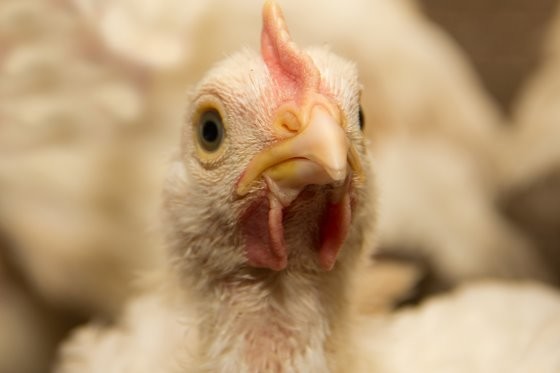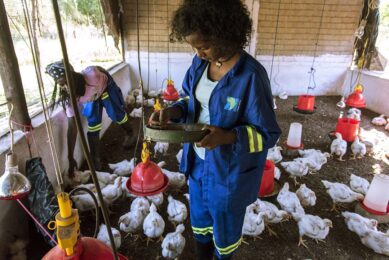Indian poultry farms breed super-resistant bacteria

Evidence is showing that poultry farms in India are breeding germs that are capable of thwarting most antibiotics.
18 poultry farms from Punjab were surveyed and 1,556 Escherichia coli isolates from 530 birds were tested to susceptibility to 11 antimicrobials using the disk diffusion method.
The results found that two thirds of the birds harboured bacteria that produce special enzymes, known as extended-spectrum beta-lactamase (ESBL) that destroy most penicillin and cephalosporin-based antibiotics.
High levels of multi-drug resistance
The researchers found high levels of multi-drug resistance, ranging from 39% for ciprofloxacin, used to treat endocarditis, gastroenteritis, cellulitis and respiratory tract infections to 86% for nalidixic acid, a common treatment for urinary tract infections.
Of the birds destined for meat consumption, 87% were found to have the super germs compared to 42% of the egg-laying hens, the journal Environmental Health Perspectives reported.
Unregulated antibiotic use in India
The study – the largest to date in India – comes at a time when there is growing concern that the use of antimicrobials in food animal production is unregulated in the country.
Report author Ramanan Laxminarayan, director of the Centre for Disease Dynamics, Economics and Policy in New Delhi, said the study had serious implications both for India and globally.
Speaking to Bloomberg, Mr Laxminarayan said: “We must remove antibiotics from the human food chain, except to treat sick animals, or face the increasingly real prospect of a post-antibiotic world.
“Our findings suggest that antimicrobial use for growth promotion promoted the development of reservoirs of highly resistant bacteria on the studied farms, with potentially serious implications for human health.”
For example, the study found that farm workers who handle the birds often wear open-toed shoes, providing a conduit of entry for resistant bacteria and resistant genes into the community and then in to the wider environment.
Join 31,000+ subscribers
Subscribe to our newsletter to stay updated about all the need-to-know content in the poultry sector, three times a week. Beheer
Beheer








 WP Admin
WP Admin  Bewerk bericht
Bewerk bericht